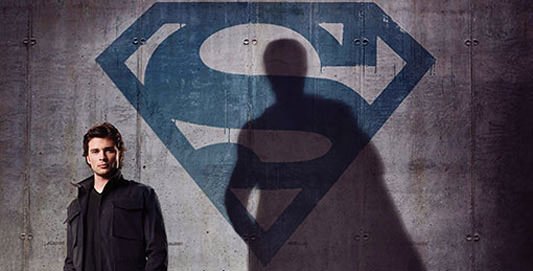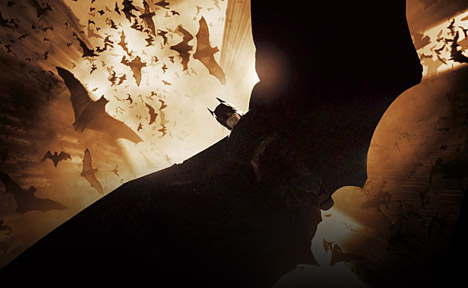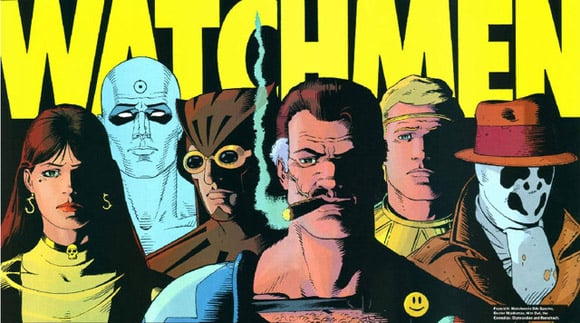 |
| After 8 years, Dexter's finally been wrapped up for better or worse. |
In season 7, Deb stumbled upon Dexter killing fellow serial killer Travis Marshall and despite Dexter's attempts to throw her off the trail, she ultimately got him to confess his own killer tendencies. I thought season 7 was one of the best because the writers had the balls to irrevocably shatter what had previously been the most enjoyable relationship of the show, that between Dex and Deb. Letting her in on the secret threw their relationship into completely unknown territory as Deb (who was Dexter's Lieutenant at the time) grappled with what to do in an impossible situation. Deb's deep love for her brother not only kept her from arresting Dex but also led her to reluctantly lie for him as she desperately tried to rid him of his urges, convinced that he was essentially a good person. Deb's belief in Dexter's essential goodness helped Dexter begin to see himself as more than just a monster, as he'd always referred to himself in early seasons. The writers did a good job preserving Deb's essential goodness even as she compromised many of her values for Dexter. Deb's love for her brother ultimately leads her to kill her boss, Capt. Laguerta when she discovers that Dexter is the real Bay Harbor Butcher. At the start of season 8, Deb's guilt over killing Laguerta forces her to leave Miami Metro and fall into an emotional tailspin. Dexter too is emotionally frazzled after Deb refuses to speak to him and states that she shot the wrong person. More than any other, season 8 showed the depth of love they share for each other and how even someone like Dexter, who claims to be devoid of emotion, is deeply affected by the situation. Season 8 may not have had the same intense buildup that some of the early seasons had, but I was captivated just about all the way through.
One of the big subplots that seemed to anger a lot of fans was the decision to bring back Hannah Mckay, Dexter's scorned girlfriend from season 7 who's racked up a decent sized body count of her own. After Hannah tried to kill Deb, forcing Dex to reluctantly turn her in to protect his sister, Hannah managed to escape prison and inevitably returned in season 8. Although initially uncertain of her motives, Dexter couldn't help being drawn to her again and soon the two renewed their relationship. Call me a hopeless romantic, but once it became clear that Hannah was no longer a threat to Deb, I for one hoped that Dexter could truly find love and happiness and put the dark passenger behind him. Given the nature of the show however, I seriously doubted that he'd get a happy ending like that. Even so, I really didn't expect the show to end the way it did. In the final episodes, Dexter and Hannah decide to move to Argentina with Harrison because Hannah's being hunted by a Federal Marshall. Deb, who's been hiding Hannah in her house until they can leave, tries to help Dexter hunt down a killer named Oliver Saxon, who threatened to kill Dexter's loved ones. With Deb's help, Dexter subdues Saxon but rather than kill him, he decides to let Deb bring him in and return to Miami Metro a hero while Dexter leaves with Hannah and Harrison. Dexter's decision to let Saxon lives signified that he let go of the Dark Passenger and no longer felt the need to kill. I liked how he tried to do what he felt was right by walking away from a kill and letting Deb be the hero. What neither Dex or Deb could've counted on was that the Marshall hunting Hannah would follow Deb to where Dexter was holding Saxon and while Dex and Deb talked outside, slipped in and released Saxon thinking he was an innocent victim. Saxon repaid the Marshall by stabbing him, grabbing his gun and shooting Deb as she burst back in. Deb survived the gunshot but in the final episode, a blood-clot to her brain leaves her in a vegetative state, much to Dex's dismay. Loving Deb as much as I do, it was awful to see her like that and it felt even worse that it was a random blood-clot that left her in that state. Still, much as I dreaded it happening, I can't say I was totally surprised that she would die. I sensed that these characters wouldn't come out of the shit storm unscathed and given the nature of events, I feared it might be Deb.
What really shocked and disappointed me was what Dexter did after finding out that Deb was vegetative. Saxon was arrested at the hospital trying to finish off Deb for good and Dexter finds a way to kill him and make it look enough like self-defense. Dexter then drives his boat to the hospital and, dressed in his kill clothes, tearfully pulls the plug on Deb and wheels her out to his boat as the hospital is being evacuated for the coming hurricane. He drives his boat to the spot where he dumps his victims and with the storm brewing around him, drops Deb's body in the choppy water and watches her sink to the bottom. It was almost traumatizing to watch such a beloved character like Deb being thrown in the ocean, even though Dexter did it to honor his sister in his own way.
After this we hear Dexter's voice over saying that Deb was wrong about him being good. Despite Deb's final words telling him that it wasn't his fault, Dex blames himself for what happened to her and says that he's poison to everyone he cares about. With that he decides that he has to protect Hannah and Harrison from himself and drives his boat straight into the storm and disappears. This I never saw coming. Even more unexpected were the finals scenes after the storm where they find the wreckage of Dexter's boat but no Dexter and we see Hannah get the news with Harrison at her side somewhere in South America. Lastly we cut to a lumberyard in what seems like Canada or someplace and see a bearded lumberjack returning to his cabin. Surprise, Surprise, it's Dexter who somehow survived his suicide attempt and is living in total anonymity. The episode ends with him sitting down at a table and looking straight at the camera, with a strange look on his face. Has the dark passenger returned leaving him free to kill again? Has he resigned himself to the fact that he can never change his nature? This ending reminded me immediately of The Dark Knight Rises ending, but in that I felt glad that Bruce had finally gotten past the issues that made him need Batman. Dexter's end didn't give me a sense of resolution or happiness. Like Bruce, I wanted Dexter to be able to overcome his urge to kill and have a "normalish" life for the sake of his son. The ending is purposefully vague and interpretive, but I just felt really bad that he simply surrendered to the belief that he's a monster who destroys everyone he loves. His decision to abandon Hannah and Harrison made me feel that Deb died in vain. She kept saying near the end that he deserved happiness with Hannah and Harrison and that she didn't want him to feel guilty for everything that happened to her. I understood why he feels guilty, but feel that he should've honored Deb's wish for him to leave and be with the people who love and need him.
After making so much progress, it was heartbreaking to see him fall back into believing he's just a monster. Deb showed him that no matter what, he was always there to make her feel safe and protected, even back when they were kids. Dexter proved that he had overcome his darkness when he let Saxon live but since he killed him to avenge Deb, he has no other living enemies who could threaten Hannah or Harrison. Assuming he's able to leave the Dark Passenger behind for good, there's no reason to believe trouble would follow him down to South America. Rather than protecting them, his abandonment deprives Harrison of his father as well as his mother and leaves everyone left behind, including Hannah, with an unresolved feeling. I guess Dexter's suicide attempt was a way to show that Dexter can't live without Deb, but I feel the best way to honor Deb was to do as she wished. Ultimately, this disappointed me most about the finale. Deb's death was wrenching enough, so I hoped for Dexter to be able to find some kind of contentment at the end. Despite what he came to believe about himself, Deb was right when she reminisced about Dexter protecting her from imaginary monsters as a child. In the end, Dexter was never a real monster; he kept the real monsters at bay.










